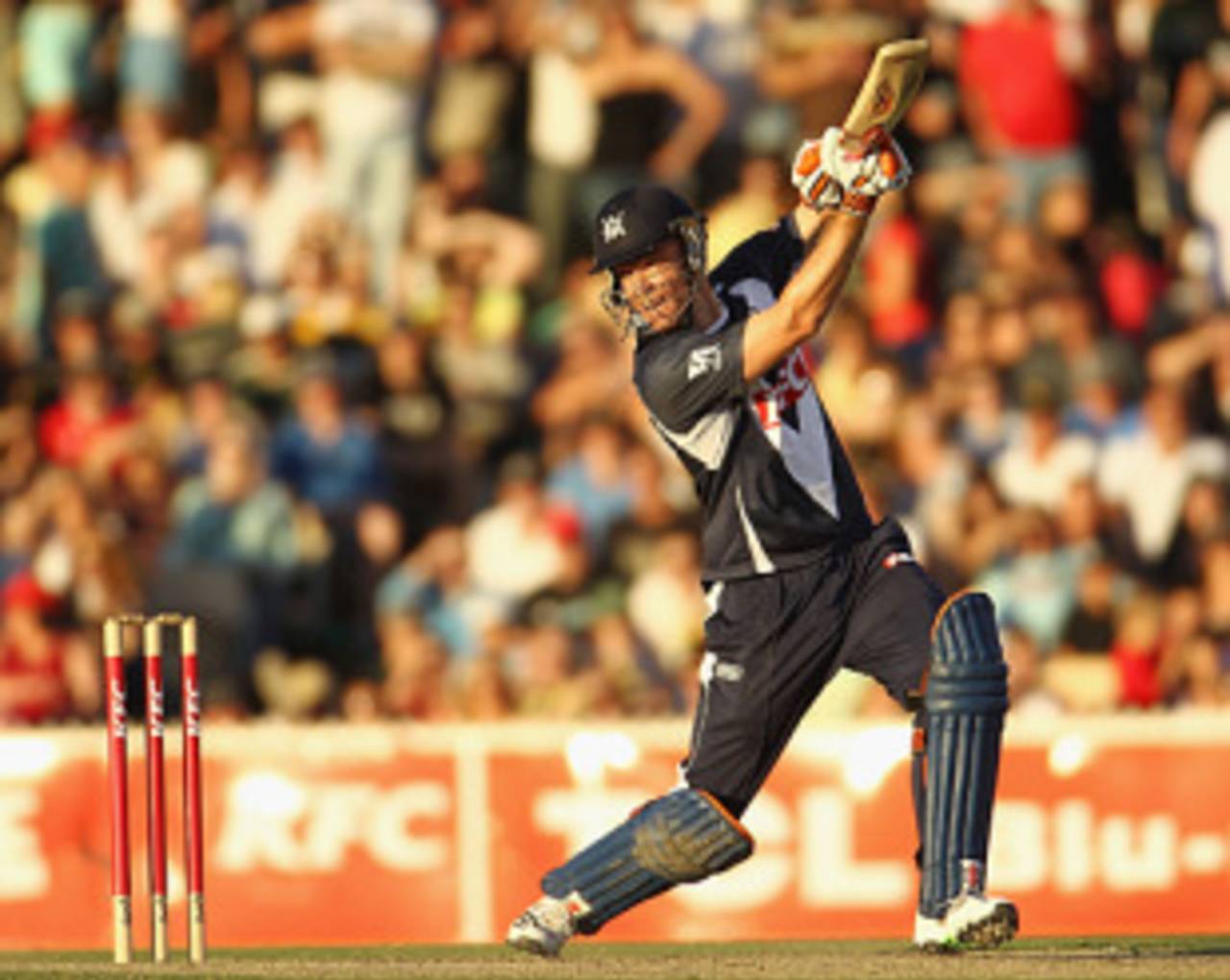Private investors will be allowed to buy a 33% stake in eight city-based franchises that will form Australia's Big Bash League in 2011-12. Cricket Australia's board gave approval for the Twenty20 expansion in Melbourne today and the organisation will own and control the competition.
Reports this week said Indian corporations had already bought shares of around A$60m in some of the proposed franchises. However, Cricket Australia believes the value of the teams will rival the biggest sporting clubs in the country. The Brisbane Broncos rugby league team was priced at A$36m this year.
James Sutherland, the Cricket Australia chief executive, said private investment would be allowed from minority stakeholders, but the individual teams would be owned by the state associations. "The board has taken a position that it will be less than 49% [minority share], probably more likely to be 33%," Sutherland said.
"We're very excited and optimistic of the existing interest in these teams and the Big Bash League. Some of the valuations we have done recently put these teams immediately into the upper echelons of Australian sport in terms of value in sporting teams."
The idea is unashamedly based on the India Premier League, but Cricket Australia is determined not to make the same mistakes over ownership that have plagued the competition this year. Two franchises, Rajasthan Royals and Kings XI Punjab, have been struck out following broken agreements, while Kochi, one of the expansion teams, is on the verge of being dumped due to issues with investors.
When asked whether fit and proper testing of owners would occur, like what happens in the English Premier League, Sutherland said, "Under the licensing agreement, which each of the states and teams will be bound by, there will be a process of Cricket Australia maintaining the rights to vet or approve any investors in any of these teams."
Sutherland said there was a lot to be learned from the IPL. "I mean that in a positive and negative sense," he said. "There is a model there that exists that has been incredibly successful.
"It's important to reflect that part of the reason this competition is already attracting investors here and abroad is the fact that it is extremely high profile, by virtue of Big Bash teams having qualified for the Champions League, and been very successful. It's also because the game of Twenty20 is popular around the world, and it's a unique opportunity for cricket."
An IPL-style auction is not an option to distribute the playing talent but there will be a strict salary cap and a draft will be considered. There are hopes for a January window to ensure Australia's international players and big-name overseas stars are available for the entire tournament, but that will not happen at least until the current TV rights deals run out in 2012-13.
"We see great merit in having Australian players playing in this competition but obviously that needs to be balanced with our commitments to international cricket," Sutherland said. "We want Twenty20 to complement, not compromise, international cricket. Finding that balance is important."
Six of the sides will come from the cities that already host domestic cricket, but the state concept will be abolished for the Twenty20 tournament. Expressions of interest will be taken from other areas of the country over the next couple of months and a decision on the final two teams will be made in February. The inaugural tournament will be held in December and January 2011-12.
Crowd numbers for the Big Bash, which started in 2005-06, increased by 80% last year to average more than 18,000 per game. Cricket Australia was initially reluctant to join the Twenty20 revolution when it began in England, but quickly swung behind it when realising how popular and lucrative it could be.
Cricket Australia has done modelling 20 years into the future and Sutherland is convinced the tournament will be a massive success. "It gives us a huge amount of confidence in how this competition is going to grow," he said. "In the first couple of years, the cash flows are somewhat handicapped by existing media rights deals, so the marginal revenues may not be quite as large, but we would expect those to kick in from year three and beyond."
While there are expectations the other two domestic competitions will be cut back, Sutherland said the Boxing Day Test was "safe". "From an international programming point of view, our priority rests with international cricket," he said. "But all of the research we have done very strongly indicates that the enjoyment that people get from the game of cricket can be spread over the three formats, or discreetly held with one format of the game."
Peter English is the Australasia editor of Cricinfo
